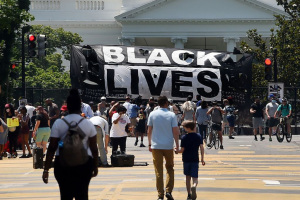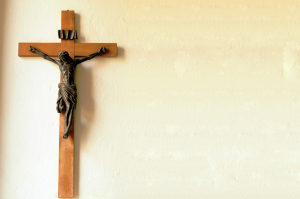Religious Colleges Choose Not to Recognize Secular Student Groups
While making more accommodations for religious minorities at their facilities, many Christian colleges draw the line at atheism.
Earlier this year, Notre Dame University, which has a Muslim Student Association and a Jewish Club, rejected an application to create a Secular Student Alliance chapter.
Dennis Brown, assistant vice president of Public Information and Communications for Notre Dame, told The Christian Post that the university’s policy is that a student organization’s goals must not contradict the mission of the university or the Roman Catholic teaching.
“Student Activities and relevant departments consider several factors, including general purpose of a club, uniqueness to campus, proposed activities, a clear constitution, a strong understanding of budget planning, projected membership, and the opportunities for membership,” said Brown.
“Our student handbook states that a club’s purpose ‘must be consistent with the university’s mission, whether it be spiritual, moral, intellectual, cultural, social, athletic or recreational.’”
Catholic-affiliated Notre Dame is not the only religious college to decide to not give formal recognition to a Secular Student Alliance chapter.
Baptist-affiliated Baylor University has also rejected an application by students to create a student organization focused on conveying a secularist message.
Debbie Goddard, Campus Outreach coordinator for the humanist group Center for Inquiry on Campus, told CP that a couple years ago CFI had similar problems in trying to get their organization recognized by Duquesne University, a Catholic college.
“A few years ago we worked with a student who was trying to start a CFI On Campus group at Duquesne University, but the administration refused to recognize the group as it didn't ‘serve God,’” said Goddard who noted that, as with Notre Dame, Duquesne does have clubs for Muslim and Jewish students.
Goddard also noted that legal action against these institutes is unlikely given that private universities have a right to not recognize student clubs.
“Private universities have a lot of leeway when it comes to their ability to discriminate, all in the name of religious liberty,” said Goddard.
“As long as they're not entangled with our tax dollars, they continue having the freedom to promote their religious beliefs and stifle dissent and questions.”
While colleges like Baylor and Notre Dame reject applications for secular student organizations, other Christian colleges have their own officially recognized SSA chapters.
In an interview with The Christian Post, Chaplain Stephen Rankin of Southern Methodist University said that SMU has an SSA chapter as it believes in “respectful free speech.”
“As a matter of principle, we encourage open speech as part of the educational process young people should experience in becoming fully adult,” said Rankin.
“So, even at a Christian faith-based school, the presence of a secularist group permits for conversation and debate about what we believe most valuable.”
Rankin also noted that he respected Baylor's decision on the issue of having non-Christian student organizations recognized on campus.
“I believe any university has the right and responsibility to make decisions about these matters in a way that officials believe are consistent with the university's mission,” said Rankin.
“I respect Baylor's well-thought response, although we at SMU do not operate that way.”
Brown also invoked respect for each college having its own mission when asked if Notre Dame’s refusal to allow an atheist student club bore a comparison to the occasional effort by public universities to de-recognize Christian clubs on their campuses.
“Since every university makes decisions based its own mission, we choose to refrain from making comparisons,” said Brown.
The Secular Student Alliance was founded in May of 2000. It presently has around 320 college chapters in the United States.



























